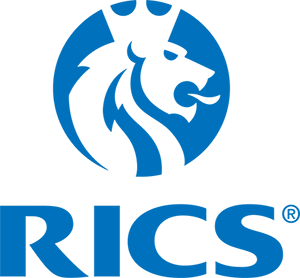Valuations for the purpose of Capital Gains Tax
The current approach to Capital Gains Tax (CGT) on property in the UK is complex. There is a divergence in the treatment of residents and non-residents in respect of non-residential property. On top of this, there is a variation in the CGT treatment depending on the type and value of property being disposed of.
For example:
- A UK resident is liable for Capital Gains tax if property held as an investment increases in value.
- A non UK resident will pay capital gains tax on Residential properties based on a Market Value of April 2015 (when there was a change to the law) or if they acquired the property at a later date, the value at that point.
- A non UK resident will be capital gains tax on Commercial properties based on a Market Value of April 2019 or if they acquired the property at a later date, the value at that point.
We recommend you confirm your tax liabilities with a qualified accountant and/or tax advisor. If you are liable to pay CGT on the disposal of your property, our qualified Chartered Surveyors (who are also RICS registered valuers) at Websters have the necessary knowledge and expertise to carry out surveys across London and the South East.
Capital gains tax may be payable when you are ‘disposing of’ a property that has increased in value. Your tax obligations are calculated on your gains rather than the selling price.
For capital gains tax, ‘disposing of’ a property includes:
- Selling it
- Trading it for another property or asset
- Gifting it to somebody else
- Gaining compensation, such as an insurance pay-out
What is the date of valuation?
The date of valuation for the purpose of capital gains tax (CGT) is based on the individual’s taxation arrangements and disposal type:
- Gifts: Capital gains tax is based on the property’s market value on the date it was gifted.
- Properties sold for less than their value to benefit the buyer: Capital gains tax is based on the property’s Market Value at the time of the sale.
- Inherited assets: Capital gains tax is based on the property’s market value at the time of the benefactor’s passing.
- Properties purchased before April 1982: Capital gains tax is based on the property’s value on the 31st of March 1982.
- For non UK residents, the start date is April 2015 for residential property.
- Alternatively, if the property was acquired after the relevant date, the date of acquisition is the start date in the assessment of gain.
How much Capital Gains Tax (CGT) will I pay?
- Capital Gains Tax (CGT) is only charged on the gains you make, rather than the amount you sell the property for.
- To work out your gain, you deduct the amount you originally bought the property for from the sale price.
- Any legitimate costs involved with buying and selling, such as broker fees, stamp duty and solicitors fees are deductible.
- Costs involved with improving assets, such as paying for an extension can be deducted when working out your taxable gain.
- However, deducting costs involved with the upkeep of a property is disallowed. You're also not allowed to deduct mortgage interest either (though that can reduce the tax you pay on rental income).
- You can also offset losses when selling other assets, and these can be carried forward indefinitely. As such, if you have a property portfolio, and make, say, a £50,000 loss when selling one property, that will increase the tax-free gain you can make when selling another.
- For any taxable gains above the tax-free allowance you'll pay Capital Gains tax subject to the above requirements.
Do I have to pay Capital Gains Tax (CGT) when I dispose my main home?
In most cases, you won't need to pay CGT when selling the property you live in, because you will be entitled to 'private residence relief (PRR)'.
Provided the property genuinely has been your main home at some point, you won't need to pay capital gains tax for the time it was your main residence, plus the past 18 months of ownership (even if you weren't living in the property during those 18 months). People with a disability or those who move into a care home may claim for up to the past 36 months of ownership.
However, you may have a capital gains tax bill to pay if you:
- develop your home, for example, by converting part of it into flats
- sell part of your garden and your total plot, including the area you're selling, is more than half a hectare (1.2 acres)
- use part of your home exclusively for business
- let out all or part of your home - this doesn’t include having a single lodger if you need are living in the property too
- moved out of your property 18 months or more ago - to move into a partner’s home, for example
- bought a home for the purpose of renovating it and selling it on.
We recommend taking advice on how much tax to pay from a suitably qualified Tax advisor such as an Accountant
Which property is my main home?
- If you use more than one home, you can nominate which will be tax-free. It doesn’t have to be the one where you live most of the time.
- Generally, it makes sense to nominate the one expected to make the largest gain when you come to sell it. You have two years from when you move into a new home to make the nomination.
- Married couples and civil partners can have only one main home between them, but unmarried couples can each nominate a different home.
Remember, you don’t get tax relief if you bought your home just to sell it on and make a gain.
How does letting relief work with CGT?
If you have let out either part or whole of your home, a proportion of any gain when you sell it could be taxable. But if you used to live in the property, you may be able to claim letting relief, which will reduce your capital gains tax bill.
Letting relief doesn't apply to buy-to-let investors who let out their properties and never live in them.
We recommend you confirm your tax liabilities with a qualified accountant and/or tax advisor. Our guide is intended to be a useful illustration but should not replace advice from a suitably qualified and experienced tax advisor. As Chartered Surveyors, we are not tax advisors.
At Websters our Chartered Surveyors (who are also RICS registered valuers) have the necessary knowledge and expertise to carry out surveys across London and the South East.
We endeavour to provide valuation advice in compliance with the RICS Valuation – Global Standards, also referred to as the RICS ‘Red Book’. This document sets out the gold standard for undertaking valuations through a quality assured process, so you can have confidence that consistency, objectivity, transparency and a high standard of service is maintained.



